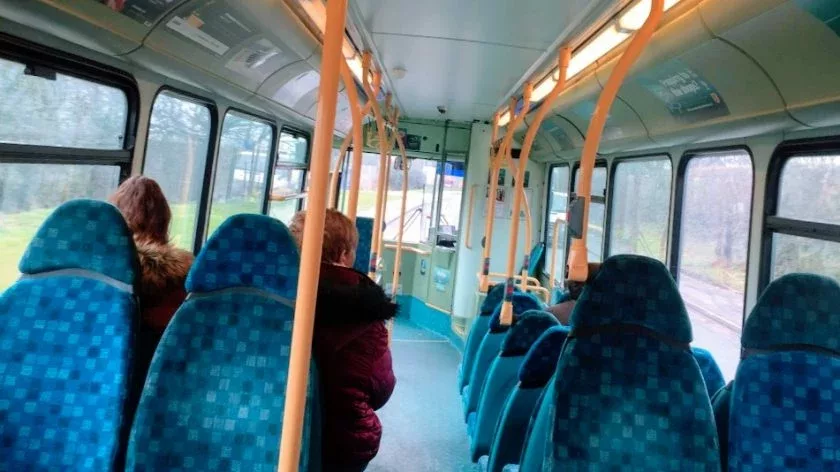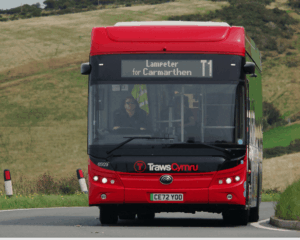The Welsh Government’s Petitions Committee, is set to explore the possibility of providing free public transport for young people.
The initiative is part of a broader vision to shift travel habits towards more sustainable modes, in line with Wales’ ambitious net zero and modal shift targets.
The Welsh Government has already said the steep challenge ahead. Its 2021 Wales Transport Strategy outlines goals to increase journeys made by public transport or active means from 32% to 45% by 2040.
A significant move towards this target is the potential introduction of free public transport for young people, as suggested by the Welsh Youth Parliament (WYP) in its 2023 “Sustainable ways” report.
The report, highlighting feedback from over 1,300 young people, found that nearly three-quarters would opt for public transport if it were free, underlining the financial barrier that fares present.
The rising costs of bus travel, a critical issue identified by the sustainable transport charity Sustrans in its 2022 report, disproportionately impact young people who rely on buses for education, work, and training, reports Deeside.com.
The WYP’s proposal for free transport for individuals under 25 is seen as a potential game-changer, not just for immediate uptake but for cultivating a lifelong habit of using public transport.
However, financial constraints pose a significant hurdle. The Deputy Minister for Climate Change, Lee Waters MS, has expressed the difficulty in funding such initiatives, pointing out the current inability to make public transport entirely free for young people.
Despite this, the Welsh Government offers some relief through discounted travel schemes like the 16-21 MyTravelPass and various railcards, although awareness among young people remains low.
The discussion extends beyond Wales, with comparisons drawn to schemes in other parts of the UK, like Scotland’s free bus travel for 5 to 21-year-olds, and targeted free services in English cities.
These examples provide valuable insights into the potential benefits and challenges of implementing similar programs in Wales.
Calls for free public transport from figures like the Future Generations Commissioner for Wales and the Children’s Commissioner for Wales emphasise the dual benefits of easing cost of living pressures and promoting environmental sustainability among younger demographics.
As the Petitions Committee delves deeper into this issue, the debate encompasses broader considerations about fairness, sustainability, and the practicalities of funding.
The upcoming ‘Bus Bill’ and ongoing discussions about fare caps and service delivery models indicate that the Welsh Government is searching for innovative solutions to enhance public transport affordability and accessibility for young people.























